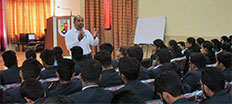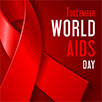
Happy Eid

MBA Faculty invited to deliver a Talk on “Banking & Insurance” at AJ Institute of Management, Mangaluru
 Prof. Ramesh K G, Department of Business Administration, invited by AJ Institute of Management, Mangaluru to deliver an Expert Talk on 'Banking & Insurance' to the newly admitted MBA students. The talk covered the topics like Evolution of Banking sector, Legal Framework, Regulatory Aspects, Technology used, Challenges Ahead for Banking Industry, Privatisation of Insurance sector, Principles of Insurance & Risk Management.
Prof. Ramesh K G, Department of Business Administration, invited by AJ Institute of Management, Mangaluru to deliver an Expert Talk on 'Banking & Insurance' to the newly admitted MBA students. The talk covered the topics like Evolution of Banking sector, Legal Framework, Regulatory Aspects, Technology used, Challenges Ahead for Banking Industry, Privatisation of Insurance sector, Principles of Insurance & Risk Management.
Tomorrow at Sahyadri
Kambala Solutions will be visiting Sahyadri on the 2nd of December, 2017 to conduct Pool Campus Recruitment Drive for the Engineering students of 2017 passed out batch.
Kambala Solutions Private Ltd aims at providing end to end business solutions. They have expertise in building high throughput, low latency distributed applications that can support a large concurrent users base. They provide solutions in the FinTech space for the following area:
• Trading and Matching solutions
• MEAN, Docker, LAMP technology stack solutions
• AWS, Google Cloud Platforms
• Middleware Technologies like ZMQ, RMQ
• C#, DotNet Products
Quote for the day
"A good education is a foundation for a better future."
- Elizabeth Warren
|
December 1st - World Aids Day 2017: Everybody counts
 World AIDS Day, designated on 1st December every year since 1988, is dedicated to raising awareness of the AIDS pandemic caused by the spread of HIV infection, and mourning those who have died of the disease.
World AIDS Day, designated on 1st December every year since 1988, is dedicated to raising awareness of the AIDS pandemic caused by the spread of HIV infection, and mourning those who have died of the disease.
To complement the global World AIDS Day 2017 campaign which promotes the theme "Right to health", the World Health Organization will highlight the need for all 36.7 million people living with HIV and those who are vulnerable and affected by the epidemic, to reach the goal of universal health coverage.
Key facts
• HIV continues to be a major global public health issue, having claimed more than 35 million lives so far. In 2016, 1.0 million people died from HIV-related causes globally.
• There were approximately 36.7 million people living with HIV at the end of 2016 with 1.8 million people becoming newly infected in 2016 globally.
• There is no cure for HIV infection. However, effective antiretroviral (ARV) drugs can control the virus and help prevent transmission so that people with HIV, and those at substantial risk, can enjoy healthy, long and productive lives.
The Human Immunodeficiency Virus (HIV) targets the immune system and weakens people's defence systems against infections and some types of cancer. As the virus destroys and impairs the function of immune cells, infected individuals gradually become immunodeficient. Immune function is typically measured by CD4 cell count.
Signs and symptoms
The symptoms of HIV vary depending on the stage of infection. Though people living with HIV tend to be most infectious in the first few months, many are unaware of their status until later stages. The first few weeks after initial infection, individuals may experience no symptoms or an influenza-like illness including fever, headache, rash, or sore throat.
As the infection progressively weakens the immune system, an individual can develop other signs and symptoms, such as swollen lymph nodes, weight loss, fever, diarrhoea and cough. Without treatment, they could also develop severe illnesses such as tuberculosis, cryptococcal meningitis, severe bacterial infections and cancers such as lymphomas and Kaposi's sarcoma, among others.
Transmission
HIV can be transmitted via the exchange of a variety of body fluids from infected individuals, such as blood, breast milk, semen and vaginal secretions. Individuals cannot become infected through ordinary day-to-day contact such as kissing, hugging, shaking hands, or sharing personal objects, food or water.
Risk factors
• Behaviours and conditions that put individuals at greater risk of contracting HIV include:
• Having unprotected anal or vaginal sex;
• Having another sexually transmitted infection such as syphilis, herpes, chlamydia, gonorrhoea, and bacterial vaginosis;
• Sharing contaminated needles, syringes and other injecting equipment and drug solutions when injecting drugs;
• Receiving unsafe injections, blood transfusions, tissue transplantation, medical procedures that involve unsterile cutting or piercing; and
• Experiencing accidental needle stick injuries, including among health workers.
LET'S END IT…End isolation…End stigma…..End HIV transmission
Published for staff and student well-being by Sahyadri Health and Counselling Centre
|
|
| Campus Buzz is the daily e-Newsletter of Sahyadri Educational Institutions |
|
|
